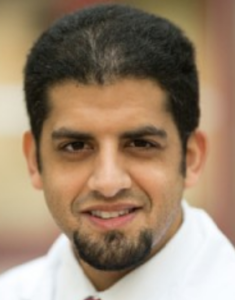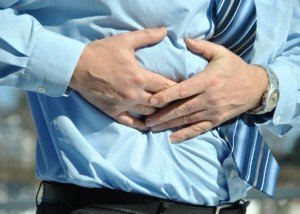
There are MANY causes, says a gallbladder surgeon, of stomach burning after the surgery, and thus, many treatment approaches.
Sometimes, a person who had gallbladder removal surgery reports a burning in the stomach.
This has many causes and is called post-cholecystectomy syndrome.
“Post-cholecystectomy syndrome (PCS) is a complex of heterogeneous symptoms including persistent abdominal pain and dyspepsia (burning sensation) that recur and persist after cholecystectomy,” explains Akram Alashari, MD, a trauma surgeon at Geisinger Medical Center in PA, and author of “THE POWER OF PEAK STATE.”
“PCS is defined as ‘early’ if it occurs in the postoperative period and ‘late’ if it occurs months or years after surgery.”
What causes the burning in the stomach?
“The symptoms of pain and dyspepsia referred to as PCS can be caused by a wide spectrum of conditions, both biliary and extra-biliary.
“About half of the patients with PCS are found to have biliary, pancreatic or gastrointestinal disorders, while the remaining patients have extra-intestinal disease.”
The term extra refers to beyond the intestines, or beyond the bile ducts for “extra-biliary.”
Dr. Alashari says that the biliary causes of PCS include:
Biliary injury, retained cystic duct or common bile duct stones.
“Late PCS can be due to recurrent common bile duct stones, bile duct strictures, an inflamed cystic duct or gallbladder remnant, papillary stenosis or biliary dyskinesia.
“Biliary dyskinesia refers to motor forms of sphincter of Oddi dysfunction. Sphincter of Oddi dysfunction can be evaluated with sphincter of Oddi manometry.”
Dr. Alashari names the following causes for extra-biliary PCS:
Irritable bowel syndrome, pancreatitis, pancreatic tumors, pancreas divisum, hepatitis, peptic ulcer disease, mesenteric ischemia, diverticulitis or esophageal diseases.
Extra-intestinal causes, says Dr. Alashari, are: intercostal neuritis, wound neuroma, coronary artery disease or psychosomatic disorders.
Treating Stomach Burning after Gallbladder Surgery
Dr. Alashari explains, “Treatment for PCS is tailored to the specific cause of the symptoms.
“Diagnosis of the underlying problem causing PCS usually requires imaging to look for retained or recurrent stones or identify a bile duct leak, stricture or transection.
“This can be accomplished in most cases with ultrasound and/or computed tomography (CT) scanning followed by direct cholangiography or magnetic resonance cholangiopancreatography (MRCP).
“MRCP provides a noninvasive alternative to direct cholangiography for evaluation of the biliary tract.”

Dr. Alashari was formerly with Grand Strand Regional Medical Center in SC as an abdominal and critical care surgeon.
 Lorra Garrick has been covering medical, fitness and cybersecurity topics for many years, having written thousands of articles for print magazines and websites, including as a ghostwriter. She’s also a former ACE-certified personal trainer.
Lorra Garrick has been covering medical, fitness and cybersecurity topics for many years, having written thousands of articles for print magazines and websites, including as a ghostwriter. She’s also a former ACE-certified personal trainer.









































